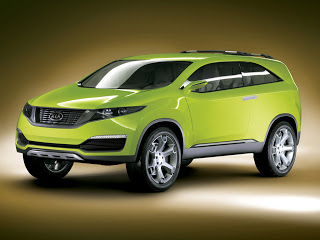The settlement with the feds is just Hyundai’s latest legal setback. A Montana judge ruled in September that the company must pay punitive damages of $73 million to the families of two teenagers who died after a crash blamed on a steering defect in a Hyundai Tiburon. The Korean automaker, which must also pay the jury’s award of $8.1 million in actual damages, had tried to get the judge to reduce the punitive damages verdict. In a rebuke to Hyundai, Judge Deborah Kim Christopher said Hyundai showed “an indifference to or reckless disregard of the health and safety of the motoring public.” Hyundai has said it will appeal the ruling.
In a statement, the South Korean automakers said they would develop next-generation engines and transmissions, reduce the weight of key models and expand their line-up of environmentally friendly vehicles to reach the target.
SEOUL (Reuters) – Hyundai Motor (005380.KS) and its affiliate Kia Motors (000270.KS) said on Thursday they aim to raise the average fuel economy of their vehicles by 25 percent by 2020 to meet emissions regulations in South Korea, the United States and Europe.
Hyundai and Kia, which together rank fifth in global vehicle sales, plan to launch a compact, hybrid-dedicated vehicle and the plug-in hybrid version of the Sonata sedan next year as part of efforts to beef up its eco-friendly cars.
Hyundai and Kia, which share key components, said they will replace 70 percent of their 10 gasoline and diesel engines with next-generation engines, while expanding the use of turbo-charged gasoline engines.
Perhaps even more worrisome than the American legal challenges is the currency volatility closer to home. Korean automakers are suffering from the renewed currency weakness of Japan, home to many of their toughest competitors. Japan’s yen, which traded around 102 to the dollar from February to mid-August, closed on Tuesday in Tokyo above 113 to the dollar. This followed a surprising announcement by the Bank of Japan of additional stimulus, particularly weakening the currency and helping exports by Toyota, Honda (HMC), and Nissan (7201:JP) become more competitive.
